Further Progress made during the Fashion DIET Transnational Meeting in Iaşi
The fifth transnational meeting (TM) of the Fashion DIET project was organised by the Technical University „Gheorghe Asachi“ in Iaşi, Romania, in the main building of the Faculty of Industrial Design and Business Management, on September 21-22, 2022. The hybrid meeting was attended by 10 persons on-site and 4 online, all representatives of the consortium partners. All in all, the Fashion DIET Consortium hold another successful meeting.
Prof. Dr. Mirela Blaga and the Dean of the Faculty Prof. Dr. Mariana Ursache warmly welcomed the members of the Consortium on the first day of the transnational meeting. The first item on the agenda for the team was a discussion on the project activities as well as the status at the partner universities. The team got an overview of the status of the lectures in the ESD module, including the papers and posters presented at various conferences in 2022. Each partner reported on their activities since the last TM. Reutlingen University for instance worked on the second project database named Fashion and Textile Database (F+TD) and kept the work going with the Glocal Campus e-learning platform. Prof. Blaga explained the situation of the Iaşi team with regard to the implementation of sustainability using the example of waste production by local textile companies near Iaşi. She also reported on a hybrid meeting, where the participants expressed great interest in the ESD aspects of the Fashion DIET project. The Yambol team around Prof. Kazlacheva reported on its preparations for the “Night of Scientists” at Trakia University. The Bulgarian partners were also in preparation including full papers for the “Bulgarian Textile Conference” in November, where three topics from the project will be presented.
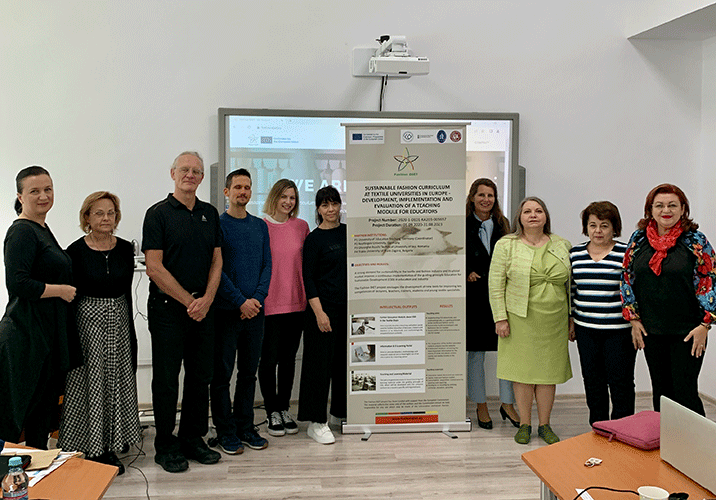
Next, the team went for a short lunch break and then visited the fashion and textile departments of the faculty including laboratories for knitting, clothing technology and design, footwear as well as textile testing.
Afterwards, the dissemination activities for the coming months were planned and aligned with each other, based on the practical action plan and the dissemination list. Following that, the team updated the status and the structure of the ESD manual, which is increasingly taking shape as further uploads of one-pagers are made. The last item on the agenda of the first day intensively dealt with the project management. Therefore, the project coordinator, Prof. Dr. Anne-Marie Grundmeier of the University of Education Freiburg, introduced the project timetable, objectives and budgeting. She also informed that the second internal reporting is due.
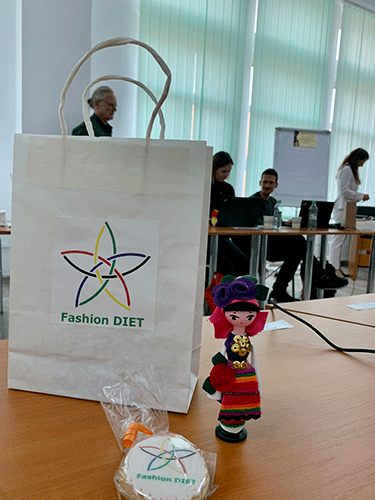
On the second day, the first focus was on the status of the two databases, i.e., the international e-learning platform Glocal Campus as well as the Fashion and Textile Database F+TD. Reutlingen University officially renamed the F+TRC database into F+TD. Meanwhile the Fashion and Textile Database was linked to the Fashion DIET project’s website. Thus, users can now easily visit the database and use its search box.
Next, Prof. Grundmeier officially started the work package on the intellectual output no. three as the project has now reached two thirds of its project time. She introduced what the topics of the teaching and learning materials should comprise. The focus will of course be on ESD and sustainability-oriented consumer education. Furthermore, a vocational orientation shall be linked to it. Target groups are public and private fashion schools, secondary and comprehensive schools with textile education as well as vocational colleges with textile and fashion departments. To rapidly advance the work on the intellectual output no. three, Prof. Grundmeier presented a template which included a detailed structure of a typical lesson.
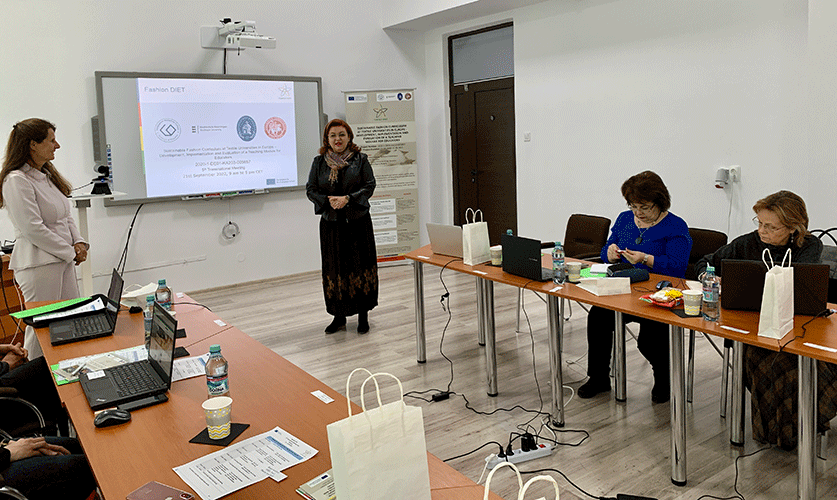
After a short lunch break and refreshments, the team started to work in groups. To do this, the team split up in three groups to exchange ideas about possible teaching and learning materials for lectures. In particular, the team created topics related to the lectures and presented the ideas to the plenary using flipcharts.
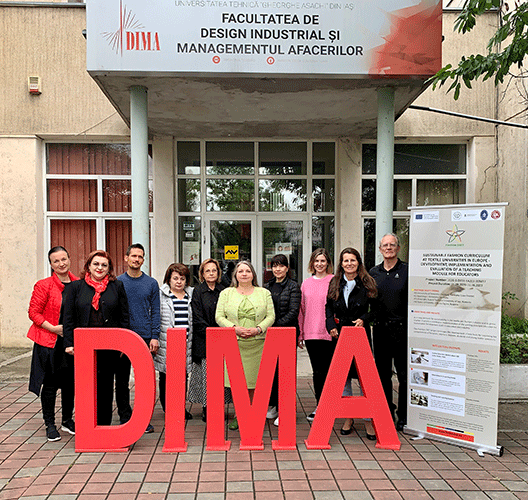
Finally, the team worked together on upcoming tasks and responsibilities concerning the intellectual outputs and concluded to set the next transnational meeting at Reutlingen University for the 20th-24th March 2023. Everyone finally took part in the online evaluation.
All in all, the meeting was very effective due to the interaction of all participants and the next stages of the project implementation were set-up. It can be concluded that the project has once again taken a big step forward.
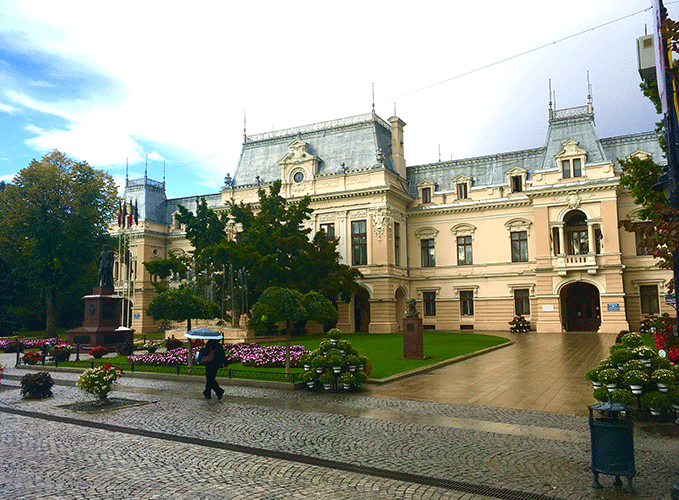
Besides the technical meeting, another success was the cultural exchange between the partners. Thus, the host organised a visit to the National Opera of Iaşi, where the project team enjoyed a performance of Bizet’s opera „Carmen“. The participants also visited the beautiful library and auditorium of the Technical University „Gheorghe Asachi“ in Iaşi. The second day of the meeting ended with a walk through the city, past the Palace of Culture, and a visit to two Orthodox churches in Iaşi. In the evening, the participants enjoyed dinner in a traditional Romanian restaurant.
Fashion DIET consortium, September 2022

